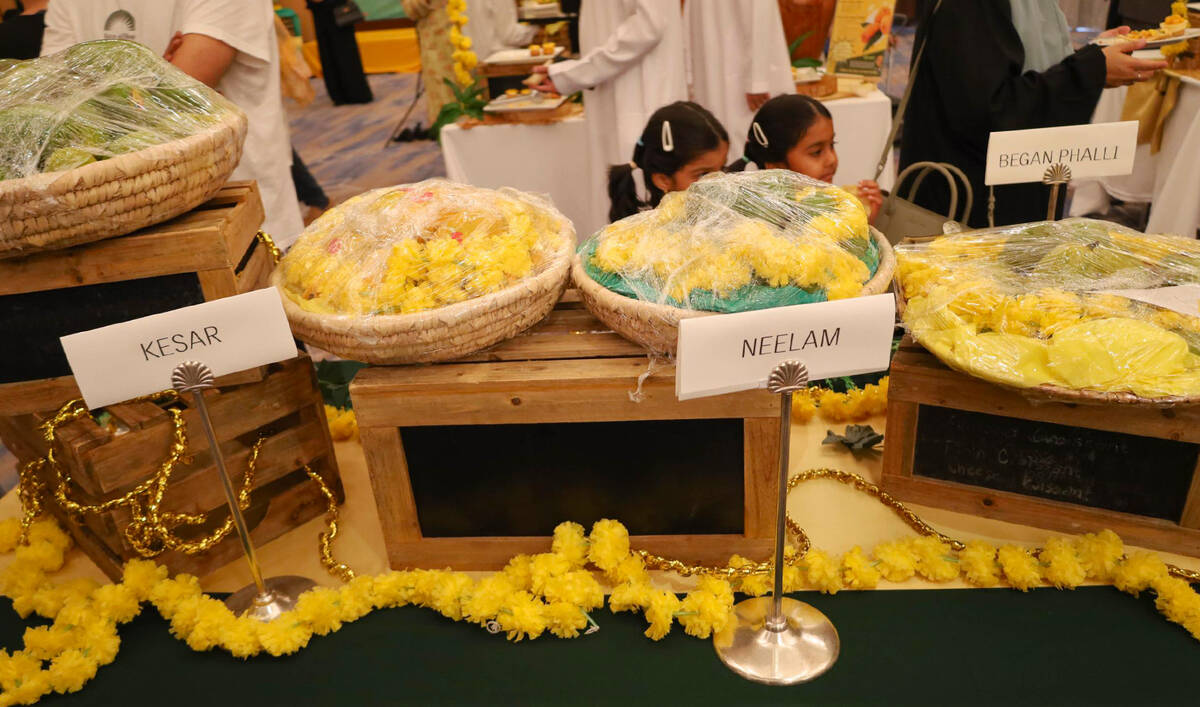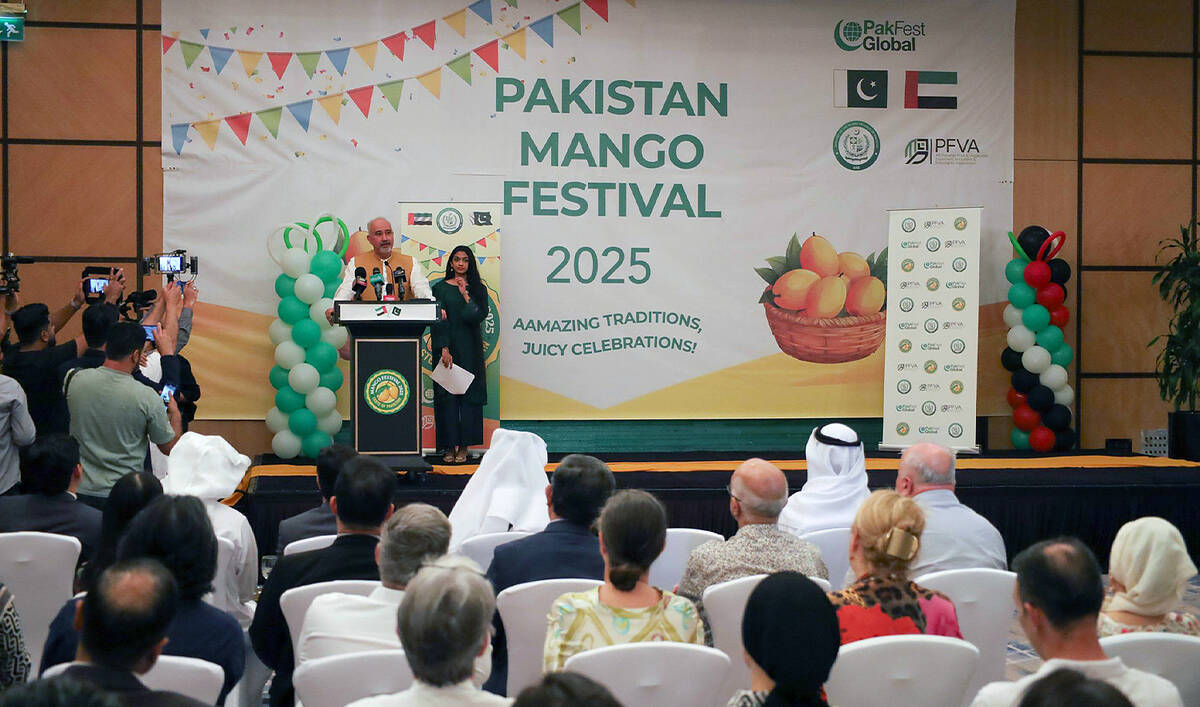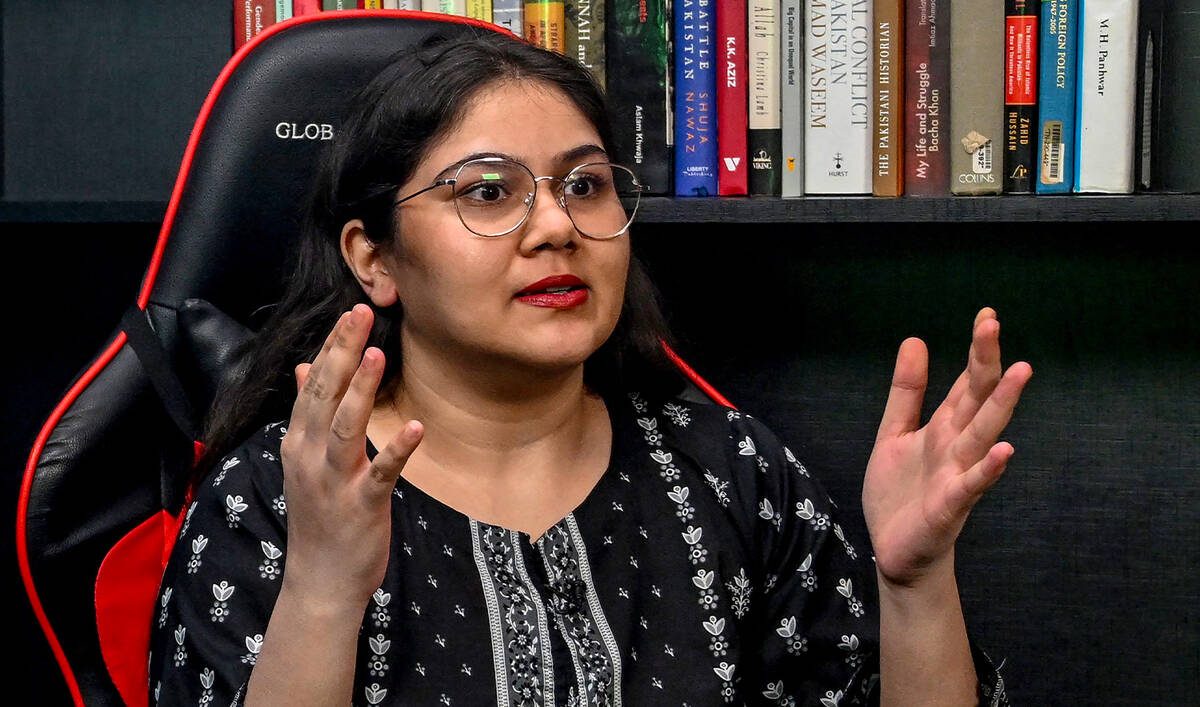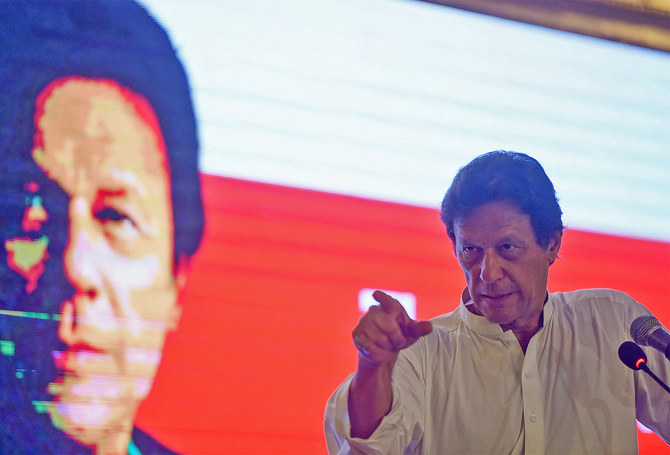LAHORE: Opposition leaders and political analysts have warned of potential violent clashes in Islamabad as the government of Prime Minister Imran Khan gave a call for a million-strong rally of the ruling party’s supporters in Islamabad ahead of a vote of no confidence in parliament against the PM, expected to take place later this month.
Pakistan’s opposition parties last Tuesday moved a no-confidence motion seeking the ouster of Khan, accusing him of bad governance and mismanagement of the economy in what is being seen as the toughest challenge the PM has faced since coming to power in a 2018 general election.
Following the filing of the no confidence request with parliament, Information Minister Chaudhry Fawad Hussain suggested “one million” supporters of the ruling Pakistan Tehreek-e-Insaf party would gather at Islamabad’s D-Chowk ahead of voting day. Lawmakers who wanted to vote against Khan, he said, would “have to pass through these people on their way in and out of the Parliament building.”
In response, the opposition Pakistan Democratic Alliance (PDM) has called on its own supporters to gather in Islamabad from March 25, setting the stage for a potentially violent clash.
“A million people gathering on D-Chowk a day before the no confidence motion will be a referendum [on PM Khan] and a referendum is important,” Hussain said, reiterating that supporters at the rally would stop defecting members of the ruling party from going to parliament.
When asked if the party had instructed supporters to prevent disgruntled members from going to vote in parliament, Hussain replied: “Workers are already indignant at the betrayal by the defecting parliamentarians so they would stop them themselves.”
The information minister dismissed the reminder that a no confidence vote was a constitutional right and a legitimate part of parliamentary politics: “The parliamentary party process is subservient to politics and this [holding a rally] is how politics is shaping.”
Responding to alarm about possible violence on voting day, Hussain said the government would take care of security:
“Will manage the law and order, don’t worry!”
A leader of the Jamiat Ulema-e Islam-Fazl, whose leader Maulana Fazlur Rehman heads the Pakistan Democratic Movement (PDM), an alliance of opposition parties, said the opposition’s supporters would gather at the same spot as the government rally, Islamabad’s D-Chowk, and stay there until the vote took place.
“We know well how to tackle the blackmailing of the government,” JUI-F leader Rashid Soomro told Arab News. “And if the situation in the federal capital spirals out of control that day, the onus will be on the ruling party.”
Azma Bukhari, a provincial spokesperson for the Pakistan Muslim League-Nawaz (PMLN) party, also added: “A clash is imminent but the responsibility will lie with the government not us. They cannot always arm-twist opponents.”
She said the opposition parties would move toward parliament on the day of the vote “in the form of a convoy.”
“We will see to it that no disgruntled ruling party’s member is stopped from voting against this government,” Bukhari said. “All the opposition will be there outside the parliament and it has been decided that all MNAs will move together toward the parliament.”
Pakistan Peoples Party (PPP) senator Sherry Rehman said the government’s announcement to hold a rally on D-Chowk to block parliamentarians from voting was “downright reprehensible.”
“The government claims to have a majority in the National Assembly, so why panic now? This is a testament to the triumph of the no-confidence motion,” he said. “It is rather unprecedented for the ruling party’s first response to be resorting to mob violence.”
The Pakistan Constitution empowers legislators of the National Assembly, whether they belong to the ruling or opposition parties, to vote on a no-confidence resolution according to their conscience, though legislators who vote contrary to party direction face the threat of losing their membership in the National Assembly under Article 63A which deals with disqualification on the grounds of defection.
“Threatening members [of disqualification] and preventing them from voting is a violation of the constitution and rules,” Rehman said. “Even the National Assembly secretariat has told the speaker that preventing any parliamentarian from casting their vote is unconstitutional.”
Veteran journalist and political commentator Sohail Warraich told Arab News it was the responsibility of Asad Qaiser, the National Assembly speaker, to ensure the government or ruling party did not take steps that would block legislators from their constitutional right to vote.
“The speaker is the custodian of the house and he should make sure that this matter is resolved within the precincts of the national assembly and not outside,” Warriah said. “If a clash takes place, it will not only jeopardize the government but the whole democratic process.”
Warriach gave the example of then prime minister of Pakistan Benazir Bhutto, who was subjected to an unsuccessful no confidence vote in November 1989.
“This is a constitutional and democratic process. Malik Mairaj Khalid was speaker of the national assembly when a no confidence motion was moved against Benazir and he handled the matter in such a non-partisan way that PPP started doubting its own speaker of being partisan in favor of the opposition. That’s the way Asad Qaiser should tread here.”
Commenting on the information minister’s remarks that the D-Chowk rally would be a referendum on PM Khan, Warriach said: “What should be settled in parliament must be settled in parliament.”
Fears of violence as Pakistani PM plans rally to block defectors from no confidence vote
https://arab.news/cx4s6
Fears of violence as Pakistani PM plans rally to block defectors from no confidence vote

- Information minister says lawmakers who want to vote against Khan in parliament would have to pass through million-strong rally
- Opposition has called its own supporters to gather in Islamabad from March 25, setting stage for potential clashes
Pakistan to consider extending deadline for Afghan refugees facing mass deportation

- Any extension approved by the government would be a relief for those previously ordered to return to Afghanistan by June 30
- In 2023, Pakistan had launched a controversial crackdown on foreigners it said were in the country illegally, mostly Afghans
PESHAWAR: Pakistan will consider extending the deadline for 1.4 million Afghan refugees living legally in the country to return home, officials said on Monday.
Any extension approved by the government would be a relief for those who were previously ordered to return to Afghanistan by June 30, according to government and security officials. A decision could come on Tuesday when the Cabinet is due to meet.
In 2023, Pakistan launched a controversial crackdown on foreigners it said were in the country illegally, mostly Afghans. Millions of Afghans have fled their homeland over the decades to escape war or poverty.
The officials — who spoke on condition of anonymity because they were not authorized to talk to the media on the record — said the proposed extension was to allow the refugees more time to settle their personal affairs in Pakistan, such as selling property or wrapping up business activities, before returning to Afghanistan in an orderly and dignified way.
A senior ministry official said the decision to submit the extension proposal was made last week. A summary regarding the fate of the Afghan refugees has been forwarded for inclusion in the Cabinet agenda.
The Interior Ministry, which has overseen the sweeping crackdown on Afghans, did not immediately comment.
There was no comment from the Foreign Affairs Ministry, which previously said it expected Afghan authorities to create “conducive conditions” so those returning were fully integrated into Afghan society.
Earlier this year, Pakistan said it wanted 3 million Afghans to leave the country, including 1.4 million people with Proof of Registration cards and some 800,000 with Afghan Citizen Cards. There are a further 1 million Afghans in the country illegally because they have no paperwork, according to officials.
They said Pakistan’s Ministry of States and Frontier Regions submitted a proposal to the federal government recommending a six-month extension for Afghans with Proof of Registration cards.
Pakistan’s expulsion campaign has drawn strong criticism from the UN and rights organizations.
Human Rights Watch has accused authorities of arbitrarily detaining and forcibly deporting Afghans, many of whom, they say, face harassment under the Taliban who seized power in Afghanistan in 2021.
On Saturday, the UN refugee agency said at least 1.2 million Afghans have been forced to return from Iran and Pakistan this year. It warned that repatriations on a massive scale have the potential to destabilize the fragile situation in Afghanistan.
Pakistani mango festival in Abu Dhabi promotes exports, celebrates Gulf demand

- Pakistan is world’s fourth-largest mango producer, Gulf countries receive 75% exports
- Festival in Abu Dhabi aims to promote trade while also strengthening Pakistan-UAE ties
ISLAMABAD: Pakistan’s embassy in the United Arab Emirates held a mango festival in Abu Dhabi to promote the country’s prized fruit exports, as demand for Pakistani mangoes continues to surge across the Gulf region, the mission said in a statement on Monday.
The “Pakistani Mango Festival 2025,” hosted at the Le Royal Meridien Hotel in partnership with the Overseas Pakistani Foundation on Sunday, drew a large gathering of Emirati dignitaries, diplomats, business leaders, and members of the Pakistani expatriate community, the embassy said in a statement.

Pakistan is the world’s fourth-largest mango producer, according to the Trade Development Authority of Pakistan (TDAP), with an annual output of around 1.8 million tons. In 2023, the country exported over 125,000 tons of mangoes, generating nearly $100 million in revenue, official data shows.
Approximately 75% of Pakistan’s mango exports are shipped to the Gulf region.
“Festivals like the Mango Festival not only celebrate our agricultural excellence but also build bridges of understanding and friendship between the people of Pakistan and the UAE,” the statement said, quoting Pakistan’s Ambassador to the UAE, Faisal Niaz Tirmizi, as saying during the event.

Popular varieties such as Sindhri, Chaunsa, Anwar Ratol, and Langra were on display and served at the festival, offering guests a taste of Pakistan’s agricultural richness.
The UAE is home to more than 1.7 million Pakistanis, one of the largest overseas communities, and serves as a key market and transit point for Pakistani agricultural exports to the broader Middle East.
Mango season in Pakistan typically runs from May to September, with exports peaking between June and August.
India-Pakistan conflict hits shared love of film, music

- India and Pakistan banned artists, YouTube channels from each other’s countries after their militaries fought in May
- While Bollywood movies have always been popular in Pakistan, Indians love music, drama serials produced by Pakistan
LAHORE: While conflict raged between the powerful militaries of India and Pakistan, a battle was also fought on the cultural front lines despite years of shared love for films and music.
The deadly fighting in early May — the worst in decades — affected artists previously untouched by animosity between their leaders.
Ali Gul Pir, a Pakistani rapper and comedian with a huge Indian following, released a song years ago mocking Indian Prime Minister Narendra Modi.
While he was spared consequences then, in May, his YouTube channel and Instagram profile were blocked in India.
“Indians now recognize that the digital space serves as a bridge between Pakistanis and Indians, and they seem intent on severing that connection,” Pir told AFP.

The collapse in bilateral relations was caused by a deadly April attack on tourists in India-administered Kashmir, which New Delhi blamed on Islamabad.
Pakistan denied the allegation and, after tit-for-tat diplomatic retaliation, their militaries fought for four days before a ceasefire was reached.
The conflict hit the music industry for the first time, with Pakistani singer Annural Khalid also remembering how her Indian following dropped off.
“Delhi was my top listening city before the ban,” said Khalid, who has 3.1 million monthly listeners on Spotify.
“I suffered a great loss in the audience” from India, she told AFP.
“Listeners were deprived of content because music was turned into something it is not,” Khalid added.

The conflict also scrubbed out some prior exchanges, such as the soundtrack of the 2017 film “Raees” on Spotify in India.
It now shows only Indian actor Shah Rukh Khan, without his Pakistani co-star Mahira Khan.
With Pakistan producing just a handful of movies each year under strict censorship rules, Bollywood has always proven popular among viewers.
“I grew up watching Bollywood. We have the same traumas, we have the same history, we have the same stories,” said Pakistani film critic Sajeer Shaikh.

Pakistani actors and directors have for decades seen making it to Bollywood as the ultimate recognition.

But this month, Indian star Diljit Dosanjh announced his latest movie, “Sardaar Ji 3,” which features four Pakistani actors, would be released “overseas only,” after New Delhi banned Pakistani content and artists from productions.
“Abir Gulaal,” a love story starring Pakistan’s Fawad Khan and Indian actor Vaani Kapoor, was scheduled to hit Indian cinemas on May 9 but the release was postponed.
Even some in the industry who had previously backed the cross-border artistic trade changed their tune last month.
“Everything should be banned... cricket, films, everything,” said Indian actor Suniel Shetty, who has a big fan following in Pakistan.

He starred in the 2004 movie “Main Hoon Na,” which subtly promotes peace between India and Pakistan.
“It’s something really unfortunate about politics, creating that rift and putting boundaries around art,” said Dua Zahra, assistant manager at Warner Bros South Asia’s music label in Pakistan.
As part of its measures in the wake of the Kashmir attack, New Delhi’s ban on some Pakistani YouTube channels included private broadcaster HUM TV.
The channel, which says around 40 percent of its viewers are from India, simply told its fans to use a VPN to continue watching.
Since Modi took office more than a decade ago, many Indian critics and filmmakers have warned that Bollywood is now increasingly promoting his government’s Hindu nationalist ideology.
While the conflict has created divisions on the cultural scene, there are signs that the trade will endure.
Over a month after the ceasefire, three Indian films were in the top 10 on Netflix Pakistan, while the top 20 trending songs in India included two Pakistani tracks.
Pir, the rapper and comedian, vowed to “bridge gaps.”
“Let’s not make war, let’s just make art,” he said.
“Let’s just not bomb each other.”
Pakistan urges India to abide by Indus Waters Treaty after world court’s supplemental award

- The court ruled that India’s decision of suspending the treaty didn’t affect its competence to adjudicate Pakistan’s complaints
- The South Asian neighbors have been arguing over hydroelectric projects on the shared Indus river and tributaries for decades
ISLAMABAD: Pakistan on Monday urged India to restore the Indus Waters Treaty (IWT), which ensures water for 80 percent Pakistani farms, and fulfil its obligations, days after the Permanent Court of Arbitration (PCA) announced a supplemental award on the proceedings instituted by Pakistan against India over Indus waters.
India announced it was putting the 1960 World Bank-mediated treaty in abeyance a day after an attack in Indian-administered Kashmir that New Delhi blamed on Pakistan, an allegation Islamabad denies. Pakistan has previously said the treaty has no provision for one side to unilaterally pull back and that any blocking of river water flowing to Pakistan will be considered “an act of war.”
In its supplemental award on the proceedings instituted by Pakistan against India over two hydroelectric projects, the court ruled on June 27 that India’s decision of holding the IWT in abeyance did not deprive the court of its competence to adjudicate Pakistan’s complaints against its neighbor. Pakistan has opposed some of hydroelectric projects by India, saying they violate the World Bank-mediated treaty on the sharing of the Indus waters.
In response to the supplemental award announced by the Court of Arbitration, Pakistan’s Foreign Office said the court found hearing the Pakistan-India dispute over Kishenganga and Ratle hydroelectric projects found that it has a continuing responsibility to advance these proceedings in a timely, efficient and fair manner.
“The Court of Arbitration decided to announce this supplemental award in the wake of India’s illegal and unilateral announcement to hold the Indus Waters Treaty in abeyance,” the Pakistani Foreign Office said in a statement.
“The award vindicates Pakistan’s position that the Indus Waters Treaty remains valid and operational, and that India has no right to take a unilateral action about it. We urge India to immediately resume the normal functioning of the Indus Waters Treaty, and fulfil its treaty obligations, wholly and faithfully.”
Last week, the PCA said it had previously found that once a proceeding before a court of arbitration is properly initiated, as in the present case, “there must be a strong presumption against the incidental loss of jurisdiction over the matters placed before it by subsequent acts, such as the appointment of a neutral expert.”
Weeks after India’s suspension of the treaty, the court issued a procedural order on May 16 and requested the parties to provide written submissions on the effect, if any, of these recent developments before the court.
Pakistan filed written submissions and no submissions were filed by India, but the court said it had considered New Delhi’s position.
“The current phase of the proceedings before the Court concerns the overall interpretation and application of the Treaty’s provisions on hydro-electric project design and operation, as well as the legal effect of past decisions of dispute resolution bodies under the Treaty,” it said.
“Accordingly, the text of the Treaty, read in light of its object and purpose, does not to allow either Party, acting unilaterally, to hold in abeyance or suspend an ongoing dispute settlement process.”
Under the IWT, India has been given the right to generate hydroelectricity through run-of-the-river projects on the western rivers subject to specific criteria for design and operation. The pact also gives the right to Pakistan to raise objections to designs of Indian hydroelectric projects on the western rivers.
On July 6, 2023, the PCA had issued its award on competence after considering India’s objections. In a unanimous decision, the court had ruled that it was competent to consider and determine the disputes set forth in
Pakistan’s request for arbitration in the case. Pakistan had initiated the present arbitral proceedings before the court on August 19, 2016.
The South Asian neighbors have been arguing over hydroelectric projects on the shared Indus river and its tributaries for decades, with Pakistan complaining that India’s planned hydropower dams will cut flows on the river, which feeds 80 percent of its irrigated agriculture.
The PCA noted on Friday that the principal issue concerned the implications, if any, that India’s decision to hold the treaty in “abeyance” may have on the competence of the court.
“Paragraph 16 of Annexure G to the Treaty provides that ‘[s]ubject to the provisions of this Treaty and except as the Parties may otherwise agree, the Court shall decide all questions relating to its competence’,” the PCA said.
“Accordingly, the Court found that it was for the Court — and the Court alone — to answer the question before it.”
New Delhi’s halting of the water agreement was one of a series of tit-for-tat diplomatic measures taken by both countries in the immediate aftermath of the April 22 attack in Kashmir, which resulted in a four-day military conflict between the neighbors in May.
Pakistan vows to continue teamwork, coordination with Saudi Arabia for Hajj 2026

- Pakistan sent over 115,000 Hajj pilgrims under both government and private schemes to Saudi Arabia this year
- Saudi Hajj ministry praises “exceptional” measures undertaken by Pakistan for its pilgrims, says Pakistani religion ministry
ISLAMABAD: Pakistan’s Hajj mission met a high-level Saudi Ministry of Hajj and Umrah delegation on Monday to discuss the successful completion of this year’s pilgrimage, the Pakistani religion ministry said, vowing to continue the same spirit of teamwork and service for Hajj 2026.
This year’s Hajj pilgrimage took place from June 4 to June 9, drawing millions of worshippers to Islam’s holiest sites in Saudi Arabia. Pakistan sent more than 115,000 pilgrims under both government and private schemes. Pakistan’s religion ministry said earlier this month that it is finalizing preparations to launch early registration for both private and government Hajj 2026 schemes to streamline the pilgrimage process.
The Saudi delegation visited the Pakistan Hajj Mission in Makkah to convey their thanks and congratulations on the successful completion of Hajj 2025, Pakistan’s religion ministry said in a statement. The delegation commended the exceptional arrangements and services provided to Pakistani pilgrims, it added.
The visiting delegation included Dr. Abdulfattah bin Sulaiman Mashat, the deputy minister of Hajj and Umrah, Eyad bin Ahmed Rahbini, assistant deputy minister for Hajj operations and Dr. Badr Muhammad Al-Solami, the director general of Hajj affairs.
“During the meeting, both sides emphasized the importance of continuing the same spirit of service, coordination and teamwork for Hajj 2026, with a shared commitment to enhancing facilities for pilgrims,” Pakistan’s Ministry of Religious Affairs (MoRA) said.
MoRA said Dr. Mashat praised the Pakistan Hajj Mission for its professional capabilities, sincere efforts and the arrangements it had undertaken for pilgrims. He described the initiatives taken for the service of Pakistani pilgrims as “exemplary and worthy of appreciation.”
Pakistan’s Director General Hajj Abdul Wahab Soomro appreciated the Saudi delegation’s visit. He highlighted the Saudi Hajj ministry’s guidance and cooperation in the smooth execution of Hajj operations, the religion ministry said.
Soomro presented a commemorative shield to the Saudi delegation as a token of gratitude and goodwill at the end of the meeting, MoRA said.
“The gesture symbolized not only appreciation for their visit but also the hope for continued bilateral cooperation in future Hajj endeavors,” the religion ministry said.
Pakistan began its post-Hajj flight operations on June 11 with the arrival of a Pakistan International Airlines flight, PK-732, in Islamabad carrying 307 pilgrims. The flights are expected to conclude by July 10.










